CBSE Class 10 Geography Map Work Chapter 1 Resource and Development is part of Social Science Class 10 Map Pointing. Here we have given NCERT Class 10 Geography Map Work Chapter 1 Resource and Development.
| Board | CBSE |
| Textbook | NCERT |
| Class | Class 10 |
| Subject | Social Science Geography |
| Chapter | Chapter 1 |
| Chapter Name | Resource and Development |
| Number of Questions Solved | 2 |
| Category | Map Work Skills |
Class 10 Geography Map Work Chapter 1 Resource and Development
Six different types of soils are found in India. These are Alluvial soil, Red soil, Black soil, Laterite soil, Mountain soil and Desert soil or Arid soil. Soils in India differ in composition and structure. This map shows the major soil types in India.
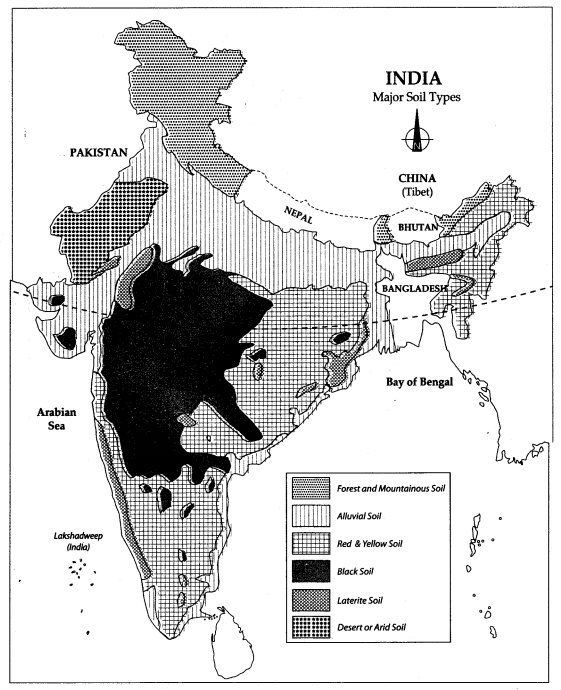
Question 1.
Locate and label the following items on the given map with appropriate symbols.
1. Regions covered under Alluvial soil [CBSE 2016, 10]
2. Regions covered under Laterite Soil
3. Regions covered under Black soil [CBSE 2012, 11]
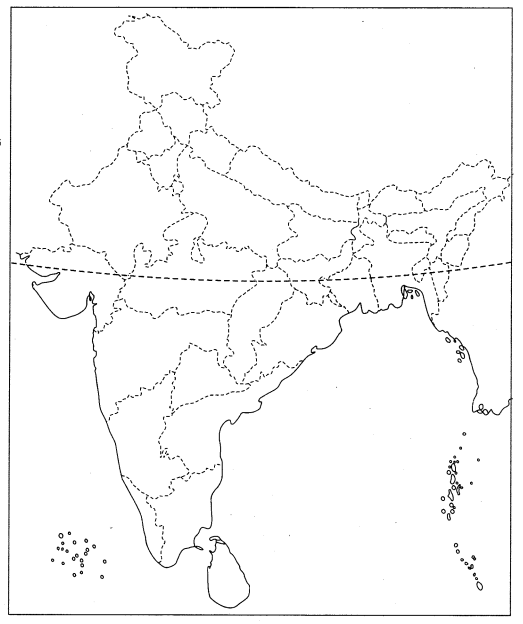
Answer
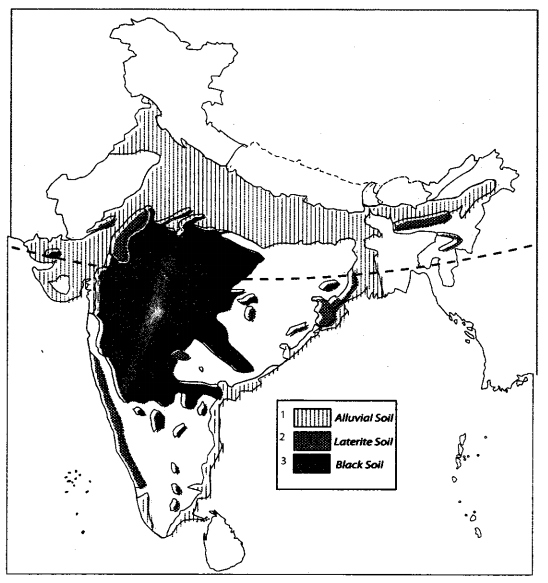
Question 2.
Features are marked by numbers in the given outline map of India. Identify these features with the help of the following information and write their correct names on the lines marked in the map.
1. A major soil type [CBSE 2012, 11,10]
2. Soil type that is formed where the rainfall is low [CBSE 2012, 10]
3. Soil type found mainly in hill slopes
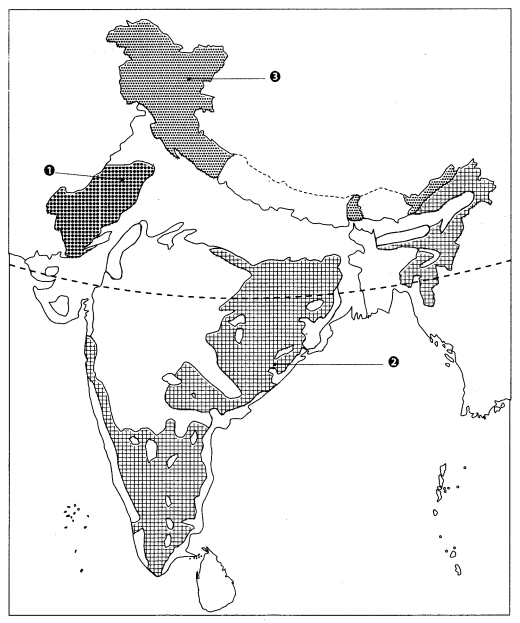
Answer
1. Desert or Arid soil
2. Red and Yellow soil
3. Forest and Mountainous soil
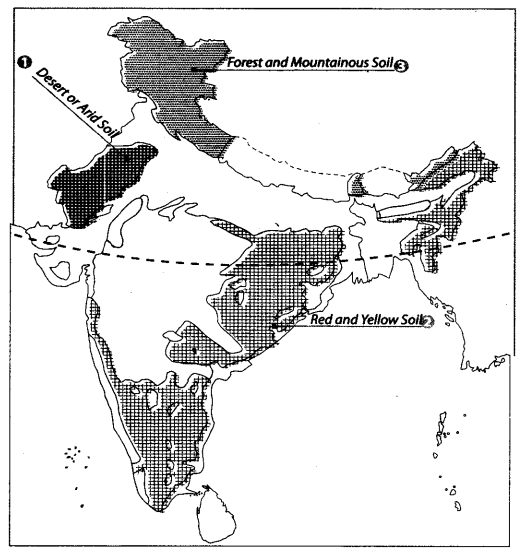
We hope the given CBSE Class 10 Geography Map Work Chapter 1 Resource and Development will help you. If you have any query regarding NCERT Class 10 Geography Map Work Chapter 1 Resource and Development, drop a comment below and we will get back to you at the earliest.
<!–
–>